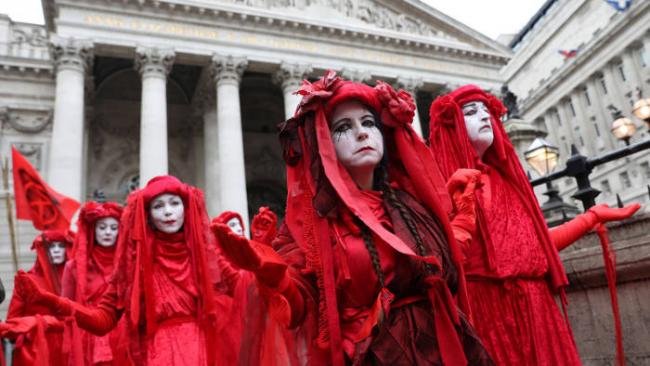Articles Menu

Nov. 14, 2019
Two of the world’s biggest fund management bosses have called for a rethink of capitalism and its obsession with constant economic growth, in a plaintive appeal for business and governments to deal more decisively with the challenges of climate change.
Anne Richards, chief executive of Fidelity International, said the world must end “our obsession with ever-increasing GDP” and the “primacy of shareholders” to foster the kind of long-term thinking that would help protect the environment.
Andreas Utermann, CEO of Allianz Global Investors, said the world’s growth mania — “nominal GDP growth, supported by population growth, [and profit] growth” — was clearly unsustainable, and suggested that capitalism in its current form is “borrowing from the future while destroying the environment”.
The pleas for reform, delivered as part of an FT City Network debate on whether capitalism could fix climate change, came in response to an address by Gail Bradbrook, co-founder of Extinction Rebellion, in which she called for wholesale reform of the current economic system to avert global disaster.
Mr Utermann, who announced this week that he will retire from AllianzGI after a 17-year career with the asset manager, said: “A more holistic approach to ‘growth’ needs to evolve, looking to capture societal and environmental benefits and costs. “More sophisticated measures than GDP per capita are required to determine whether capitalism is delivering to all stakeholders without borrowing from the future while destroying the environment.” It was “self-evident that this is not sustainable”, he said.
In her critique of the short-termist outlook of shareholders, Ms Richards, who has also worked in senior roles at Aberdeen Asset Management and M&G, called for a “pivot [away] from the Milton Friedman concept of capitalism and the primacy of shareholders, who may have a very short-term involvement with an individual company, towards a wider stakeholder approach”.
The surprisingly outspoken interventions from two of the City’s best known asset managers reflected a wider view among contributors to the FT City Network debate that business and government must urgently improve their response to the growing evidence of environmental catastrophe. “Solving climate change through inclusive capitalism will define our generation,” said Nigel Wilson, chief executive of Legal & General, another big asset manager.
Several participants hailed the role that UK-based climate change activist group Extinction Rebellion has played — alongside the likes of Swedish teenager Greta Thunberg and film-maker David Attenborough — to highlight the issue. Recent protests have focused in part on the City of London and the role that banks, asset managers and insurers play in financing and sustaining some of the world’s most environmentally damaging industries, from oil extraction to vehicle manufacture.
Several City Network contributors said that, while it was impossible to instantly blacklist climate unfriendly firms, it was vital that companies set tough environmental targets, measure whether they were met and reward managers on their performance, rather than on short-term profit.
“Of course it’s not ‘either profits or sustainability’,” said Robert Swannell, the former financier and Marks and Spencer chairman who now chairs the government’s investment arm UKGI. “But let us ditch the shareholder value maximisation mantra and look for metrics that not only measure financial performance but also measure positive or negative impact on society.”
The shift towards a broader interest in stakeholders was foreshadowed in the US by a summertime announcement from the Business Roundtable, a key US corporate lobby group. It insisted that capitalism was the best way to protect jobs in a sustainable economy with “a healthy environment”, though it made no mention of climate change.
The FT City Network is a panel of more than 50 senior figures from across the City of London. Each month the forum debates a subject of topical interest.
[Top photo: Activists dressed in red demonstrate outside the Royal Exchange in the City of London as part of a wave of protests by Extinction Rebellion in October © Isabel Infantes/AFP/Getty]